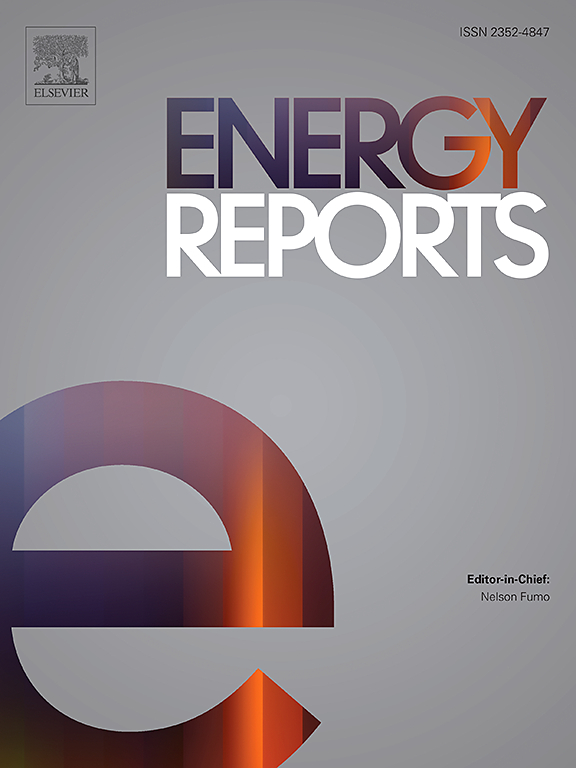Enhancing voltage control and regulation in smart micro-grids through deep learning - optimized EV reactive power management
IF 4.7
3区 工程技术
Q2 ENERGY & FUELS
引用次数: 0
Abstract
This paper presents an innovative application of deep learning optimization techniques, combined with the Artificial Bee Colony (ABC) algorithm, to enhance voltage control and regulation in smart micro-grids integrated with electric vehicles (EVs). The study addresses the challenges posed by fluctuating reactive power demands due to EV charging, proposing a novel method that utilizes a Deep Learning Neural Network (DLNN) to optimize Voltage Source Converter (VSC) controllers. This approach enables EVs to actively participate as reactive power compensators, ensuring voltage stability while achieving desired state-of-charge (SoC) levels for EV batteries. Simulation results on a 33-bus radial distribution network demonstrate that the proposed DLNN-ABC framework significantly improves voltage regulation compared to traditional methods, even under varying grid conditions. The method achieves enhanced performance in metrics such as Root Mean Squared Error (RMSE) and Mean Absolute Error (MAE), with RMSE reduced by 50 % compared to conventional fuzzy logic control. Further, the framework minimizes Total Harmonic Distortion (THD) in voltage and current, achieving reductions of 77.8 % and 66.7 %, respectively. These improvements translate to superior power quality, enhanced battery life, and increased efficiency in grid operations. The findings highlight the transformative potential of integrating advanced AI optimization techniques in micro-grid management, particularly with the rising adoption of EVs. By dynamically adjusting reactive power and improving voltage profiles, the proposed solution supports both stable grid operations and cost-effective EV charging. This research sets a foundation for future advancements in smart grid technologies, emphasizing the synergy between deep learning and optimization algorithms for sustainable energy systems.
求助全文
约1分钟内获得全文
求助全文
来源期刊

Energy Reports
Energy-General Energy
CiteScore
8.20
自引率
13.50%
发文量
2608
审稿时长
38 days
期刊介绍:
Energy Reports is a new online multidisciplinary open access journal which focuses on publishing new research in the area of Energy with a rapid review and publication time. Energy Reports will be open to direct submissions and also to submissions from other Elsevier Energy journals, whose Editors have determined that Energy Reports would be a better fit.
 求助内容:
求助内容: 应助结果提醒方式:
应助结果提醒方式:


